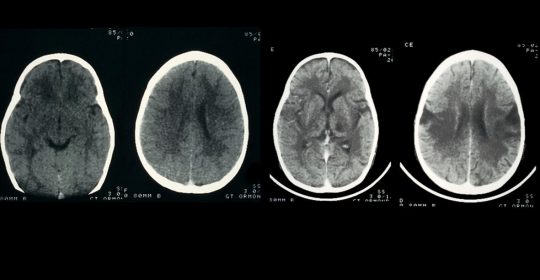
Differences between Meningitis and Encephalitis
Both Meningitis and Encephalitis are inflammatory diseases of the central nervous system and spinal cord and can be treated by our dedicated neurologists in Dubai. These diseases are caused by either bacterial or viral infections and can be fatal if not detected or treated early.
Meningitis is an inflammation of the membranes that surround your brain and spinal cord, rather than directly affecting the brain. The swelling that occurs from meningitis will trigger headaches, fevers and a stiff neck. Most cases of meningitis are caused by a viral infection, and some cases improve without treatment in a matter of a few weeks. However, others can be life-threatening and will require emergency antibiotic treatments.
Encephalitis is an inflammation of the brain itself. There are many causes, but the most common happens to be viral infections. It often causes mild flu-like symptoms such as a fever or a headache, but some cases have no symptoms at all. Encephalitis can cause seizures, confusion or problems with movement and senses.
Symptoms of meningitis and encephalitis
While both diseases are different in nature, they have similar symptoms and can sometimes mimic the flu. Symptoms for meningitis and encephalitis can include:
- Headaches
- Fever
- Joint pain
- Fatigue
- Nausea or vomiting
- Muscle weakness
- Body stiffness
- Sensitivity to light
- Loss of appetite
What causes meningitis and encephalitis?
Meningitis
Bacterial meningitis is rare but can be fatal. Bacteria will cause an upper respiratory tract infection and then travel through the bloodstream up to the brain. Bacterial meningitis can also occur when certain types of bacteria invade the meninges directly. This disease can cause strokes, hearing loss and even permanent brain damage.
Viral meningitis is commonly caused by Enteroviruses such as echovirus and coxsackievirus. Enteroviruses tend to reside in the digestive tract and infections caused can be contagious.
Other common causes of viral meningitis include:
- Mumps
- Measles
- Herpesviruses (HSV or HSV-2)
- Influenza
- Arboviruses
- Lymphocytic choriomeningitis virus
- Human immunodeficiency virus (HIV)
Encephalitis
The exact cause of encephalitis is unknown but the most common cause is a viral infection. Encephalitis can also be caused by bacterial infections and non-infectious inflammatory conditions.
There are two main types of encephalitis.
Primary encephalitis is a condition that occurs when a virus or other agent directly infects the brain. A primary infection could be a reactivation of a virus that has been inactive after a previous illness or condition.
Secondary encephalitisresults from having a faulty immune system that reacts to an infection in other parts of the body. Rather than attacking only the cells that are causing the infection in the body, the immune system will mistakenly attack the healthy cells in the brain. This type of encephalitis will usually occur two to three weeks after an initial infection and is therefore referred to as post-infection encephalitis.
Causes of encephalitis are similar to viral meningitis, but can also include:
- Tick-borne viruses
- Rabies
- Childhood infections

